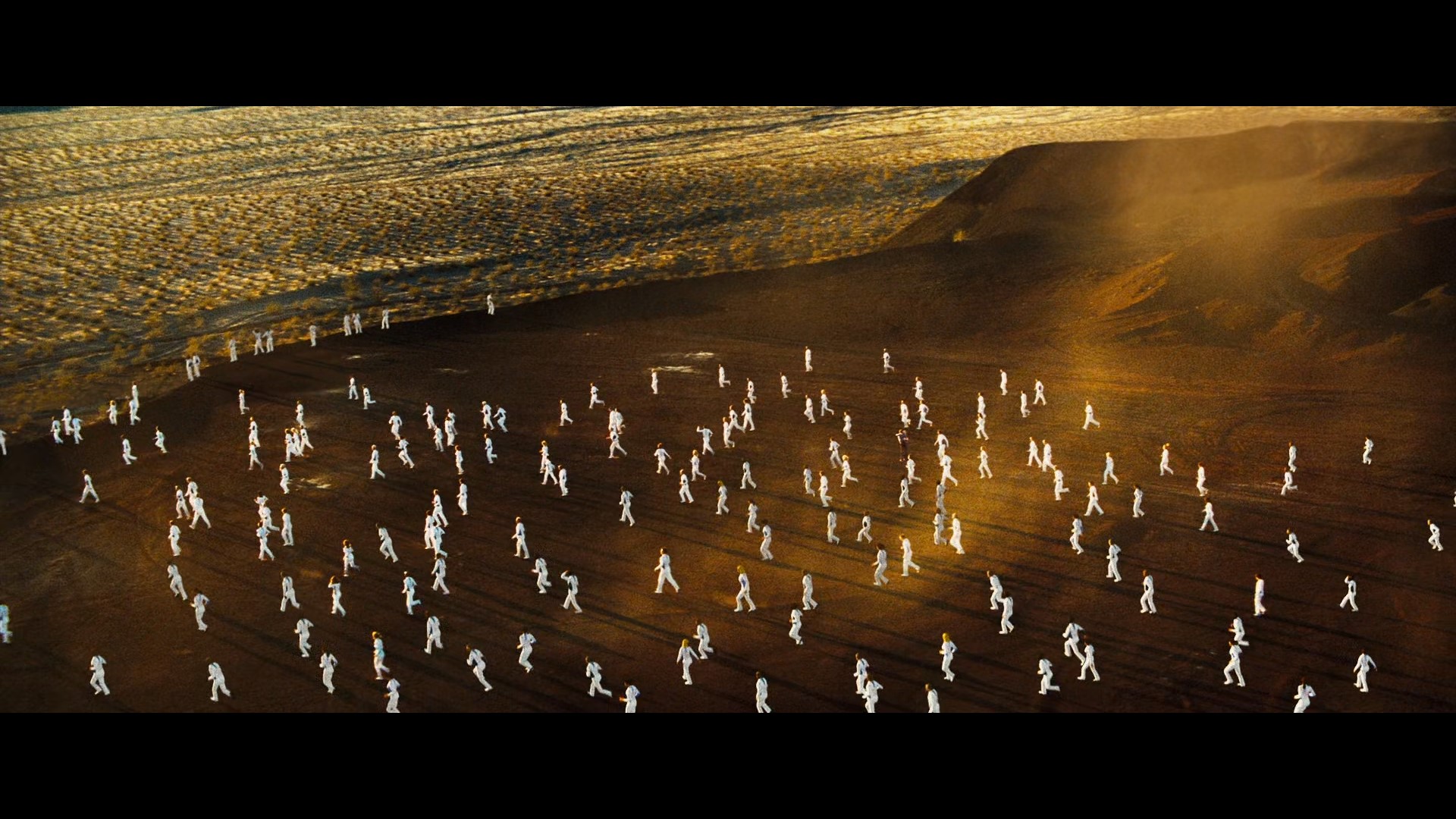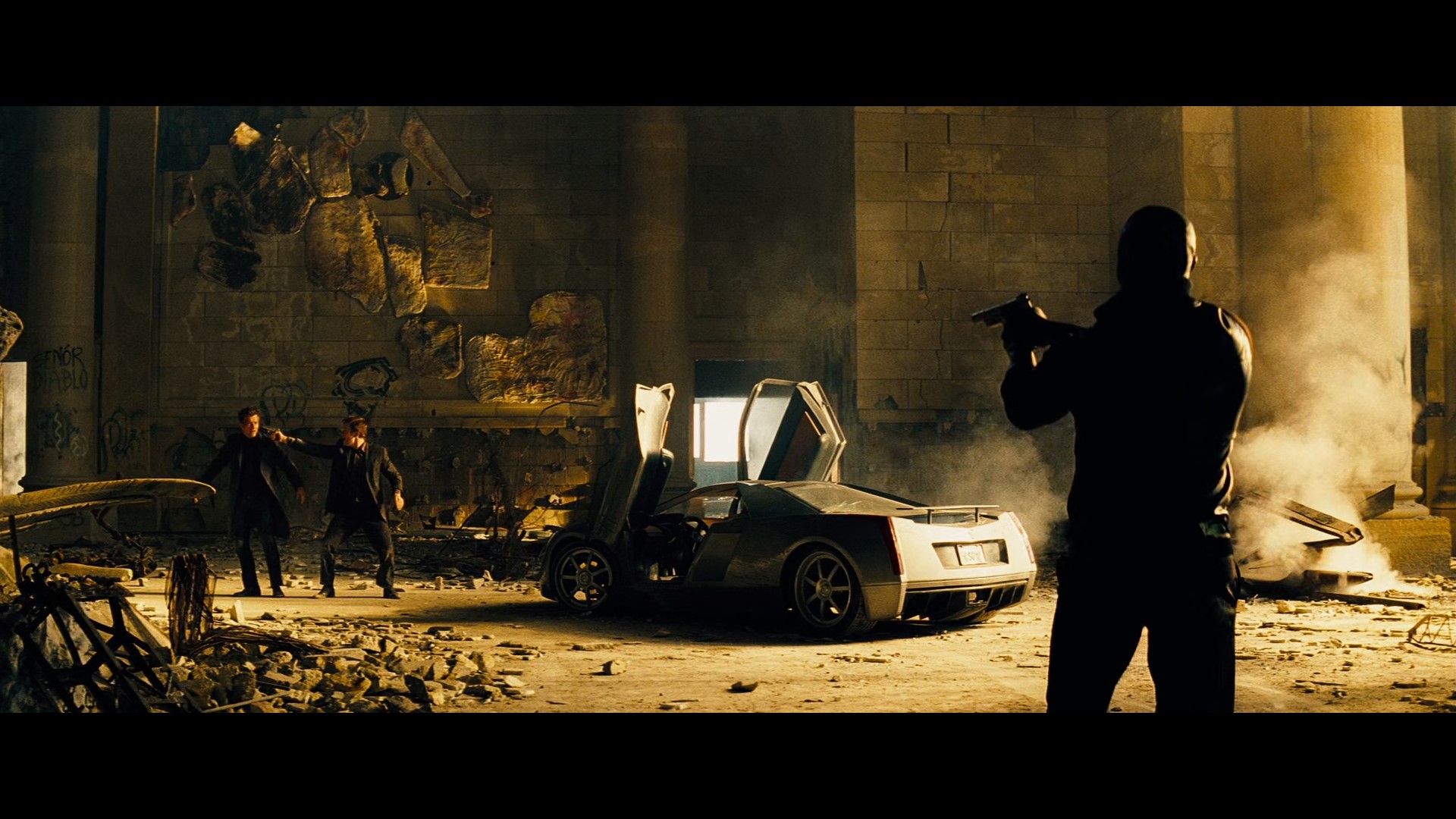The movie “Island” depicts the escape and struggle of Lincoln 6-Eko, who discovers that he is a cloned human in a tightly controlled society. It criticizes the reality of cloned human bodies being used as replacements for original human beings, and raises ethical issues related to scientific advances in cloning technology. Lincoln 6-Eko eventually exposes the dehumanizing quarantine society and liberates the cloned humans, and the film explores both the possibilities and dangers of human cloning technology.
The movie begins with the introduction of Lincoln 6-Eco, a male protagonist who lives in a tightly controlled society. He meets and falls in love with a woman named Jordan 2-Delta, but he learns that he is not a real human being, but a clone of a real human being, and that he will be killed for them if anything goes wrong with his body. He tries to escape the society that controls him, and his life is threatened by those who try to stop him. After a series of twists and turns, he manages to escape with the woman he loves, and they seek out the humans who created them. He pleads with them for protection, but they try to send him back to the camp. Once again pursued and threatened with death, they overcome this, and the film ends with the liberation of the replicants, revealing to the world the existence of this inhuman isolation society.

As with most movies about science and technology, this movie is not easy to understand in the beginning. However, since the movie is told from the perspective of Lincoln 6-Eco, the truth is revealed one by one, and it makes you sweat. When Lincoln 6-Eko realizes that he is a cloned human, I felt a sense of despair as well. I felt outrage at the camp’s administrators who, upon learning all of the facts, isolate Lincoln 6-Eko as “contaminated” by the other replicants, a kind of social burial, culminating in a scene in which a replicant is brutally murdered and forcibly harvested for his organs. The scene where the female protagonist, Jordan 2-Delta, makes love to the male protagonist, Eko, made my heart melt, and the scene where Lincoln 6-Eko overcomes all odds and wins the battle against the quarantine society at the end made me feel triumphant, even if indirectly. I was deeply moved by the intriguing theme and the structure that stimulates the inherent morality of humanity.

This time, we’re going to talk about the subject of cloned humans in movies. Even within the category of cloning humans, there are two main perspectives to consider. One is the cloning technology itself, and the other is the ethics of this technology.
First, let’s look at the technology itself. To get into the details of cloning technology, we need to briefly review the current state of cloning technology. Cloning technology is constantly being researched, from Dolly the cloned sheep and Young Longyi the cloned cow to embryonic stem cell research, which was highly controversial a few years ago. Even though Dolly and Young Longi didn’t live a normal life, their birth is still an incredible achievement. The secret to Dolly and Young Long’s creation is somatic cell cloning. This literally means that only the body’s cells are cloned, as opposed to being cloned as an adult immediately after birth, as in the movie. Currently, such cloning is not possible, so let’s first understand the realities of somatic cell cloning.
Before we get into somatic cell cloning, there are some concepts that you need to know. There are two main types of cells in the human body. There are two main types of cells in the human body: somatic cells, which make up the body as a whole, and germ cells, which are responsible for reproduction. Each cell has a nucleus, which contains the DNA that contains all the information of a person. It is from this DNA that all the information of a small cell and a large person is determined.
Now, based on the previous explanation, let’s look at the process of somatic cell cloning in more detail. First, a woman’s egg is extracted and its nucleus is removed (an egg is a cell, so it has a nucleus). Then, the nucleus is extracted from the somatic cell of the individual you want to clone and implanted in place of the removed nucleus. The egg with the implanted nucleus is called a “cloned embryo,” which, when grown, will result in an individual with the same genes as the individual that provided the somatic cell. This is how somatic cell cloning works. There are a lot of concepts to learn, but the principle of somatic cell cloning is not difficult to understand.
Now that we’ve covered cloning technology, let’s take a look at another perspective: the ethics of cloning. Cloning technology is undoubtedly revolutionary and great from a scientific point of view. However, we need to think more about how humans use this technology and for what purposes. Moreover, since cloning humans is literally a human technology, the ethics of this technology should be thoroughly examined before it is realized.
If cloning humans were possible, how would we benefit from it? In other words, why would humans want to realize a cloned human despite all the challenges? One of the biggest reasons is the possibility of replacing a damaged body, as discussed in the movie. Imagine a situation where a vital organ is damaged due to an accident or disease. It’s a terrible thing, but what would you have to worry about if you could have a new organ transplanted that was identical to your damaged one? Or imagine a couple who are unable to have children but desperately want to have children. How great would it be if they could have children through cloned embryos?
Let’s say we work hard and succeed in applying cloning technology to humans, and cloning humans become popular. Would that be a good thing?
Cloned humans can be compared to identical twins in that they would live contemporaneously with someone exactly like themselves. Since identical twins live contemporaneously with someone who looks exactly like them, they are constantly being compared to each other in every way. We can assume that cloned humans would also experience this stress. However, since the cloning of a human being was done in recognition of its superiority, the cloned human is already subjected to enormous expectations from the moment it is born. This is a far cry from the minor stresses of an identical twin. If I am a clone of the figure skater Kim Yeon-ah, I will be expected to conquer the world with the same figure skating skills as her. Would I be able to live my life well with such a huge pressure?
If the above is a problem when the age difference between the original human and the cloned human is large, what about when the age difference is very small? Imagine that the original human was cloned as a baby, and the age difference between the original human and the clone is only a year or two. What kind of relationship would we say the clone has with the original human? It would be an ambiguous relationship, neither parental nor sibling. This could cause major social problems.
In a more extreme case, if human desire is maximized, I think an ‘island’ can definitely be formed. If there is a replacement for my body that is damaged in an accident, and it is a clone human being, humans will have the desire to create and raise a clone human being. Then the clone would be killed for no reason at all for someone else, and it would be socially justified. It’s a barbaric idea, but it’s not impossible.
So far, we’ve been looking at the movie-inspired technology of “cloning humans”. As with all technology, it can be a blessing or a disaster, depending on how humans use it. If this technology could be realized, life extension would not be a pipe dream. However, as we’ve seen, there are some very serious ethical contradictions that would pose serious problems for humanity. I looked at a lot of sources for this article and found that the idea of cloning humans is largely debated and generally skeptical, more on ethical grounds than technical ones. Taken together, we can conclude that even if human cloning technology is feasible, it is far from practical.
 I’m a blog writer. I want to write articles that touch people’s hearts. I love Coca-Cola, coffee, reading and traveling. I hope you find happiness through my writing.
I’m a blog writer. I want to write articles that touch people’s hearts. I love Coca-Cola, coffee, reading and traveling. I hope you find happiness through my writing.